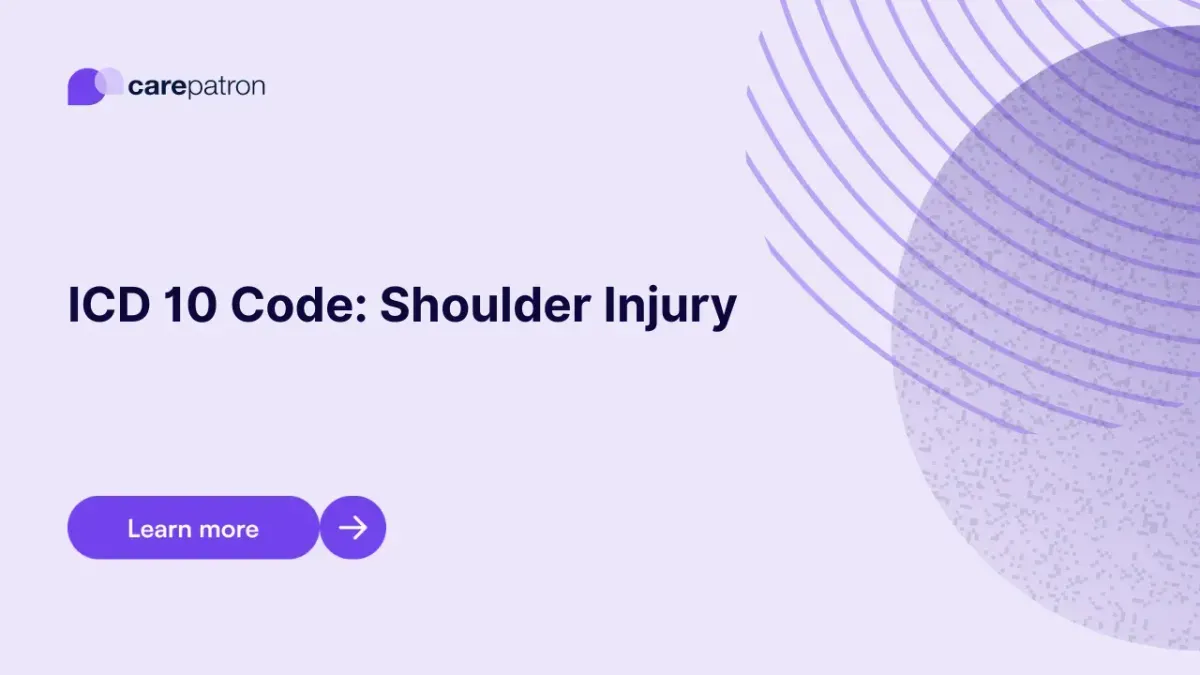
Shoulder Injury ICD-10-CM Codes
Learn about the ICD-10 codes for shoulder injury that you can use through this guide.
Use Code
Commonly asked questions
Shoulder injury ICD codes are used for diagnosing, planning treatment, billing, and statistical and research purposes. They provide standardized documentation of the injury's specific nature and location.
Common treatments for shoulder injuries include rest, ice, pain relievers, physical therapy, corticosteroid injections, and sometimes surgery for more severe injuries like rotator cuff tears or fractures.
A diagnosis code for a shoulder injury provides detailed information about a shoulder injury's specific type and nature. This standardized coding allows healthcare professionals to document and treat the condition accurately.
EHR and practice management software
Get started for free
*No credit card required
Free
$0/usd
Unlimited clients
Telehealth
1GB of storage
Client portal text
Automated billing and online payments
